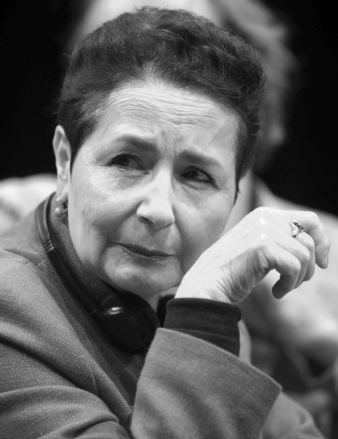
Leïla Sebbar
- Algeria, France
- Zu Gast beim ilb: 2009
Leila Sebbar, the daughter of Algerian-French teachers, was born in Aflou in south west Algeria in 1941. In 1961 she went to Aix-en-Provence, where she studied literature. She worked as a French teacher in Paris and wrote for various magazines, including »Sans Frontières«, »La Quinzaine littéraire«, and »Le Magazine littéraire«. Strongly influenced by French feminism, she launched the women’s magazine »Histoires d’elle« (1976-80), writing reportages and essays on women’s issues. Since the publication of her study on ‘the good Negro’ in eighteenth century French Colonial literature by Sartre in »Les Temps Modernes«, the theme of encounter and confrontation between self-image and the perceptions of others has haunted her work.
In her first story »Fatima ou Les Algériennes au square« (1981, tr: Fatima, or the Algerian Women in the Square), the theme of immigrant and exile, which would come to dominate her voluminous work, is already established. Her »Shérazade Trilogy« (1982-92) made her the pioneer of the new ›Beur‹ literature, that of the second generation of Mahgreb immigrants. At the centre of the story is Shérazade, a young Algerian runaway who flees the desolate Parisian immigrant suburbs in search of her western-eastern identity. Stops on her way include the French multicultural scene, the ›Beurs‹ protest march on Paris in 1983 which led to the founding of the ›SOS Racism‹ movement, Beirut, Jerusalem, libraries and museums. The book’s reportage-like quality, its vivid and authentic language, choral impressionism and the theme of evasion are central aspects of the ›aesthetics of exile‹ which characterise Sebbar’s work, including her travel notes and diary sketches, which have recently become available online (»Voyage en Algéries autour de ma chambre«, Suite 3-6, 2008/2009). She describes her collections as ›Collective autobiographies‹. These deal with themes from Franco-Algerian colonial history and include »Une enfance algérienne« (1997, tr: An Algerian Childhood), »Mon père« (2007, tr: My Father), and »Ma mère« (2008, tr: My Mother), which is about shifts of position and perspective in the work that examines Franco-Algerian memory.
No less central in Sebbar’s work are the themes of language and voicelessness. Her most recent novel »Mon cher fils« (2009, tr: My Dear Son), in which an old immigrant returns to Algiers and dictates long daily letters for a lost son to a young female scribe, deals with the theme of communicative poverty within Maghreb migrant families.
Leila Sebbar won the Prix Kateb Yacine in 1993 for her novel »Le silence des rives« (tr: The Silence of the Riverbanks). She has lived in Paris since 1963.
© international literature festival berlin
Shérazade, 17 ans, brune,
frisée, les yeux verts
Stock,
Paris, 1982
Das verbotene Kleid
Altberliner Verlag
Berlin, 1996
Je ne parle pas la langue
de mon père
Julliard
Paris, 2003
L’arabe comme
un chant secret
Bleu autour
Paris, 2007
Shérazade à Julien
Les Cahiers bleus
Paris, 2008
Mon cher fils
Elyzad
Tunis, 2009
